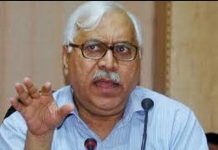Studying plays a crucial role in shaping an individual’s personal and professional life. It serves as a foundation for gaining knowledge, developing critical thinking, and achieving success. This article explores four key reasons why study is essential.

Knowledge and Skill Development
Studying is the primary means of acquiring knowledge and honing skills. It allows individuals to explore a wide range of subjects, from science and history to technology and the arts. This broadens one’s understanding of the world, encourages curiosity, and equips individuals with the tools necessary to solve problems. Continuous learning, whether formal or informal, enables individuals to keep up with new developments and advancements, making them better equipped for real-world challenges.
Personal Growth and Confidence
Education contributes significantly to personal development. Through studying, individuals learn discipline, time management, and self-motivation. It fosters critical thinking and improves decision-making skills. The more a person learns, the more confident they become in their abilities. Studying also encourages self-reflection, helping individuals understand their strengths and weaknesses, which is crucial for personal improvement. This growth is not limited to academic settings but also applies to life experiences and challenges.
Career Advancement and Economic Opportunities
In today’s competitive world, education is essential for career advancement. Studying equips individuals with specialized skills and knowledge required for various professions. Higher education, vocational training, or skill-based learning can open doors to better job opportunities, higher income, and career satisfaction. Employers often seek candidates who are not only knowledgeable but also adaptable and capable of learning new skills. Therefore, continuous study and professional development are vital for long-term career growth.
Contributing to Society
An educated individual is more likely to make informed decisions and contribute positively to society. Studying helps individuals become responsible citizens who understand their rights, duties, and the importance of civic engagement. Through education, people can contribute to economic growth, social progress, and environmental sustainability. Knowledgeable individuals can address societal issues and create a positive impact by participating in community services, innovation, and policy-making.
Conclusion
Studying is a lifelong process that goes beyond acquiring formal education. It is a pathway to personal fulfillment, professional success, and societal contribution. By continuously seeking knowledge, individuals can grow, adapt to new challenges, and play an active role in improving themselves and the world around them.
































